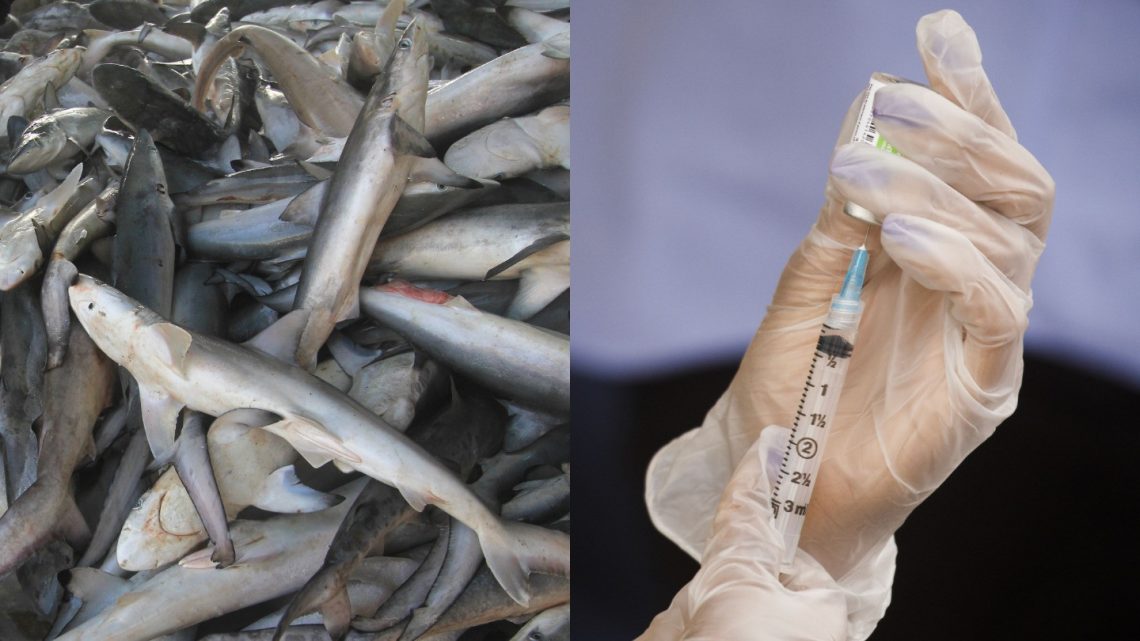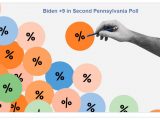
Half a Million Sharks Could Be Killed to Make a Global COVID Vaccine
September 29, 2020Conservationists are worried that the mass production of a COVID-19 vaccine could devastate shark populations around the world, as a number of pharmaceutical companies are found to be using oil from the animals’ livers in the development of their vaccines.
Squalene, a natural organic compound sourced primarily from shark liver oil, is most commonly used by pharmaceutical companies to produce cosmetics and sunscreens. But the substance also plays a valuable part in vaccine development for the way in which it acts as an “adjuvant”—that is, a pharmacological agent that increases the strength of certain medicines by boosting the immune response in recipients.
In short, shark liver oil helps make vaccines stronger. And that, of course, is bad news for sharks—particularly at a time when every major country in the world is scrambling to develop and produce a coronavirus vaccine on a global scale.
Data published by the Regulatory Affairs Professionals Society (RAPS) and the World Health Organisation (WHO) indicates that of the 176 candidate vaccines in clinical and preclinical evaluation, 17 use adjuvants. And according to research by US non-profit organisation Shark Allies, at least five of those adjuvants are shark squalene-based.
One of them is MF59: an adjuvant that typically contains 9.75 milligrams of squalene per dose, and which is currently being used by the University of Queensland, in partnership with biotherapy companies CSL and Seqirus, for the development of a coronavirus vaccine candidate.
If every person on Earth was given a single dose of that vaccine, an estimated 249,351 sharks would have to be killed. If two doses of the vaccine are needed to immunise the global population—a likely outcome, according to some medical experts—the prospective death toll climbs to nearly half a million sharks.
“This is not speculation,” Stefanie Brendl, founder and Executive Director of Shark Allies, told VICE News over email. “However, it's not like 500,000 sharks are going to be hunted down in some particular region just so they can be killed for vaccines. No one is going out to specifically kill sharks right now just to get enough for a vaccine. [But] that is not the point.”
According to Brendl, the point is that the development and production of coronavirus vaccines is likely to keep multiplying over the coming years as the global population attempts to inoculate itself against a range of coronaviruses. And if the harvesting of shark livers continues to be the primary source of a major ingredient in those vaccines, then worldwide immunisation could carry an immense ecological cost.
“It's something we need to get ahead of ASAP, because we are facing many years of vaccine production, for a global population, for many more coronavirus vaccines to come,” said Brendl. “The real danger is in what this can turn into in the future. A reliance on shark oil for a global vaccine—it’s truly insane. A wild animal is not a reliable source and cannot sustain ongoing commercial pressure. [And] the overfishing of sharks globally is already at critical levels.”
Brendl points out that the squalene industry is already taking 2.7 million sharks for cosmetics use—a number that is predicted to double by 2024 and triple by 2027—while millions more are taken for fin harvesting and as a result of overfishing in general. Often the squalene is harvested as a by-product of these activities, but “livering”—where a shark is killed only for its liver, or has its liver taken before being thrown back into the water—is also an issue in some parts of the world.
Great whites, hammerheads and endangered whale sharks are among those most often targeted for their livers. And conservationists like Brendl are worried that a squalene-dependent COVID vaccine could spell further disaster for shark species that are already at critical levels.
That doesn’t mean they want researchers to delay the development of vaccines until they can ensure the absolute preservation of sharks, though.
“That is not what we are asking for,” Brendl said. “We are asking for producers to continue what they are doing. There is no need to halt or slow down anything. We ask that they start testing non-animal based squalene ALONGSIDE animal based squalene for all uses … We ask that the pharmaceutical and the cosmetics industry replace their shark squalene with alternatives as soon as possible without affecting current vaccine development.”
In recent years scientists have started turning to more sustainable, plant-based sources for squalene, including vegetable oils from rice bran, wheat germ and olives. In 2015 a team of researchers in the US produced squalene biosynthetically using genetically engineered bacteria. In 2013, a team of researchers in Poland noted that the oil from amaranth seeds could be used as a promising source of squalene, stressing that “in the interest of protecting biodiversity, raw materials of animal origin must be replaced by alternative sources that respect our environment”.
“The industries stand to profit immensely from having a global vaccine,” said Brendl. “It is reasonable to ask that they start thinking about a reliable and sustainable production.”
Follow Gavin on Twitter


